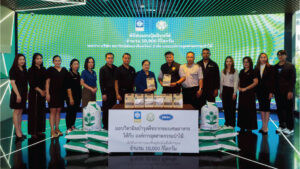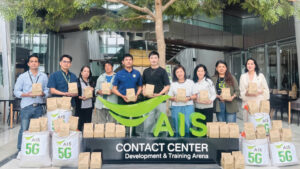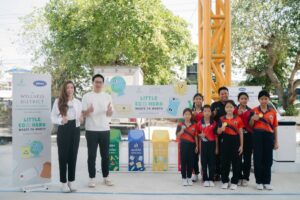
Singapore International Schools (SISB) collaborates with Oklin to advance the Zero Food Waste Campus initiative, driving forward sustainable food waste management for maximum benefit.
Singapore International Schools (SISB) collaborates with Oklin to advance the Zero Food Waste Campus initiative, driving forward sustainable food waste management for maximum benefit.
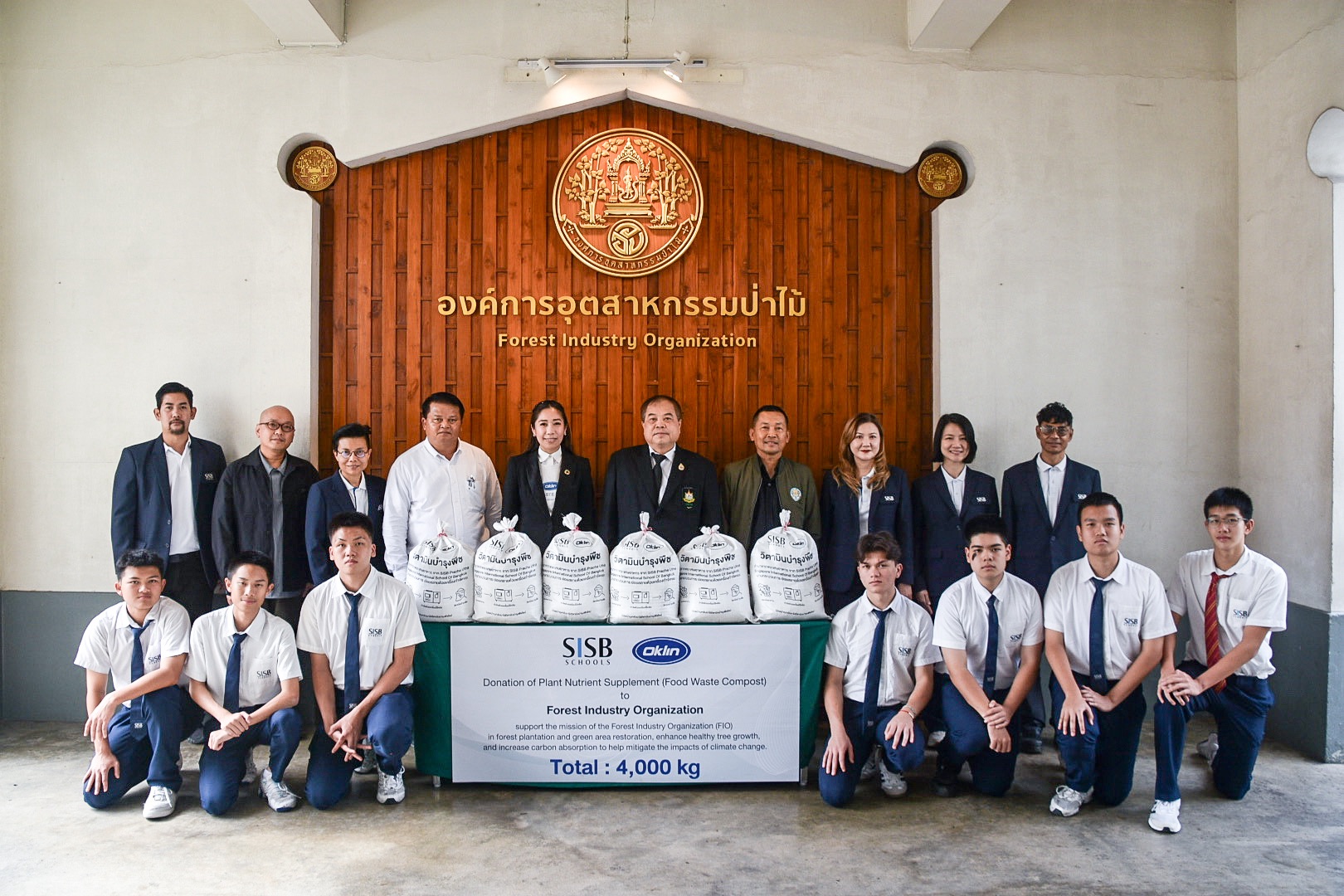
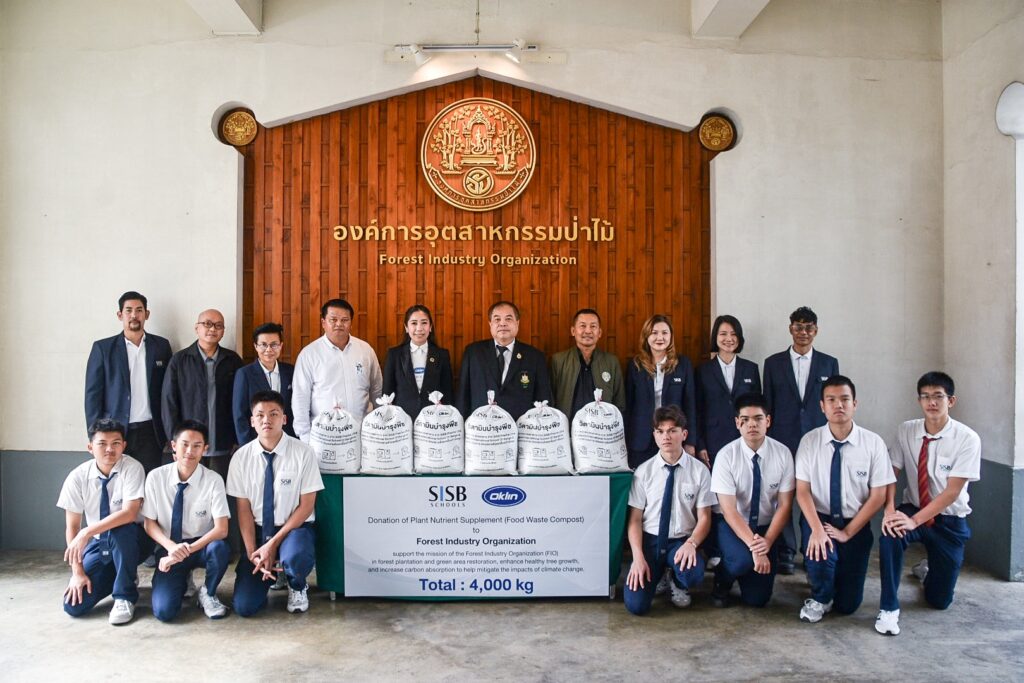
Singapore International Schools (SISB) collaborates with Oklin to advance the Zero Food Waste Campus initiative, driving forward sustainable food waste management for maximum benefit.
Singapore International Schools (SISB), in collaboration with Oklin (Thailand) Co., Ltd., continues to advance the Zero Food Waste Campus initiative, reinforcing its commitment to maximizing the value of food waste management across education, environmental stewardship, and social development. Through this initiative, food waste generated on campus is processed using Oklin’s biotechnology-driven decomposition system, transforming discarded food into high-quality “plant vitamins”—a safe and nutrient-rich soil enhancer that supports agricultural use and contributes to ecosystem restoration efforts nationwide.
Recently, school administrators and student representatives from SISB Pracha Uthit visited the executives of the Forest Industry Organization (FIO) to explore future collaboration under the activity “Transforming Food Waste into Organic Fertilizer, Bringing Life Back to the Forest.” The delegation was warmly received by Mr. Channarong Intanon, Acting Director of the FIO, together with Mr. Wirat Prakotdee, Director of the Central FIO Office, and Mr. Pairat Krutvisai, Director of the Carbon and Innovation Business Office. During the meeting, the FIO shared insights into its mission to conserve, rehabilitate, and manage the nation’s forest resources, as well as its role in expanding green areas and driving sustainable forest management.
The discussion also highlighted the origins of SISB Pracha Uthit’s food waste management project and the significance of adopting OKLIN technology from the very first step of waste segregation within the school. The 24-hour decomposition process not only reduces food waste but also produces high-quality plant vitamins. This serves as a practical model of Experiential Learning, enabling students to understand waste cycles, carbon footprint reduction, and the value of transforming waste into meaningful social impact.
The exchange of ideas further opened new opportunities for future collaboration, including using plant vitamins produced from school food waste to support the FIO’s forest restoration projects, developing field-based learning activities on forest ecosystems and natural resource management, and designing school–forest–community collaborative programs as scalable sustainability models.
Following the constructive dialogue, SISB and Oklin formally delivered over 4,000 kilograms of plant vitamins—produced from more than 24,000 kilograms of food waste generated by students and staff. This milestone demonstrates the effectiveness of the school’s waste management system and clearly reflects how waste segregation and behavior-change initiatives among students can lead to tangible social outcomes.
This collaboration holds great significance for both the school and the FIO. Beyond reducing landfill waste and methane emissions from decomposing food, the plant vitamins help restore soil fertility in forest areas, support healthy tree growth, and enhance carbon sequestration within forest ecosystems—contributing to more effective and sustained green-area rehabilitation.
Ultimately, this partnership stands as a powerful example of how education, business, and conservation sectors can join forces to drive meaningful and lasting environmental change. Students gain firsthand understanding of the value of waste reduction, witnessing the journey of food waste from source to reuse, realizing the positive impact of their everyday actions, and taking part in the nation’s forest restoration efforts. Meanwhile, the FIO receives a high-quality material that strengthens green-area development, increases tree survival rates, and helps reduce long-term forest rehabilitation costs.

OKLIN – Eco-Friendly Food Waste Composter
Transform food waste into dry fertilizer within 24 hours.
- No need to separate liquids – pour liquids directly without hassle
- Add microbial starter only once – no refills required for the entire lifespan
- Natural microbial decomposition – safe for the environment
- Produces dry, crumbly fertilizer – ready to nourish plants or use in agriculture immediately
- No filter replacement needed – reduces hazardous waste
- Australian innovation – easy to use for both households and industries
For more information, contact Line: @oklinthailand



